Contents
Four-wheeling is a great hobby for many people. Most people that do it realize how much there is to learn and enjoy! For those of us who “wheel”, you will rarely see us without a Jeep.
Yes, they’re pretty cool to drive around town and can get you through the snow or sand with ease. But when we really want to test the limits of our Jeeps and the driver, we head off-road.
So, you are thinking about going off-road for the first time. The main thing you need is a Jeep which is the best SUV in Nepal! Whether it’s owned by you or borrowed from a friend or family member. You now have access to wherever you want to go and explore in almost any condition – as long as your Jeep can handle it of course, which we all know they can.
So, what do you take with you, and what is the most important? Well, the following are the essentials that you need to carry when you are going to off-road on your jeep.
1. Ground Anchor:
If you love off-roading, then you’re going to need a winch. After all, it’s hard to imagine getting very far without being able to pull yourself out of a rut. If you do get stuck, having a good winch is critical for self-recovery.
Unfortunately, there’s one big problem with most winches: there’s not much to hook them on to when you’re in the middle of nowhere. That’s why RedRock 4×4 created the Land Anchor. This anchor has a 16,000-pound breaking strength and can hold up to 24,000 pounds at 10 feet or 12 inches of soil cover. The best part? It requires zero drilling and assembles in minutes!
The RedRock 4×4 Land Anchor is made of stainless steel so it will never rust and will last forever even after being used thousands of times. You can use this stake on any terrain including sand, mud, or snow! And best of all, the stake has an integrated swivel so you can use your winch on almost any surface without worrying about your line getting tangled up!
2. Winch:
A winch is the quintessential off-road tool. This 12,000 lb Barricade Winch will free your JKU truck from a tough spot and get you back on the trail, regardless of whether you are doing a self-recovery or helping out a friend who chose the wrong path.
A winch is an essential part of your recovery kit. Whenever you’re exploring off-road trails, never go without one. Whether you get stuck in mud or need to free a friend who rolled over an embankment, a winch can come to the rescue.
This powerful winch has all the features necessary for safe and easy recovery. Its wireless remote control gives you complete control over the winching process from up to 300′ away, and it also has an integrated safety brake that prevents over-pulling and reduces wear on the motor.
3. Gloves:
Gloves are one of those items that most trail hikers overlook when planning their outing, but without them, you’ll really wish you had a pair the first time you pull a winch line or rig a recovery strap. You won’t regret having a pair of leather Rugged Ridge Recovery Gloves the first time you pull the winch line or rig a recovery strap without them. These leather Rugged Ridge Recovery Gloves have more uses so you are recommended to have at least one pair in your recovery bag.
The gloves feature an adjustable wrist strap with a quick-connect buckle that keeps them secure, even while taking on the toughest trails. The palm is made from genuine leather for maximum durability and grip, while Kangaroo leather on the back of the hand offers breathability and comfort. They also have finger grooves for added dexterity when fiddling with tie-down straps or winch lines as well as reinforced stitching for added strength.
The palm also has a non-slip texture to help prevent slippage when you’re working with the winch or recovery strap.
The Rugged Ridge Recovery Gloves also have a neoprene wrist strap that allows you to tighten the glove around your hand and really get them where you need them for any task. Not only does this strap help keep the gloves tight, but it also helps to hold in heat when you are working hard in colder temperatures.
4. Tree Protector:
Some people think it’s no big deal if they wrap a strap around a tree a few times to use as a winch point, but bark damage is permanent and kills the tree. The Rugged Ridge Tree Trunk Protector lets you protect the tree and stop the bark from being permanently damaged.
As the 4wd cars market continues to grow, so does the need for off-roading parts and accessories. Rugged Ridge is no stranger to this trend, with a wide line of gear designed to help you go wheeling in style and comfort. The first part of your vehicle that should be covered for protection is the tree protector. You’ll need a tree protector that’s strong yet flexible so it can conform to the bark of any tree or log you’re using as a tie-in point for your vehicle.
The Rugged Ridge Tree Trunk Protector has been made from heavy-duty polyester fabric so it won’t fray or snap on you when you put tension on it. It’s also been reinforced with UV inhibitors and anti-microbial agents to keep it from rotting or becoming moldy in the elements.
When you’re out wheeling, naturally you don’t want to damage trees or other natural features, but if you have to use a tree for winching purposes or as an anchor point for your recovery equipment, it’s important that you not cause any permanent damage or kill the tree by crushing its bark or stripping its bark from the trunk entirely. The Tree Trunk Protector takes all the strain from winching so the bark is not damaged and allows trees and
5. Spare Fuel:
The biggest headache of any off-road trip is running out of fuel. Always carry a small fuel can (preferably the 5-gallon military can or one of the newer tall skinny cans like the ones from Daystar) filled with fuel and strapped down to your vehicle. You never know when you’ll run into unexpected delays or even a little damage to your vehicle that could cause you to need more fuel than expected.
Spare fuel is essential for any long journey off-road. Make sure to pack enough to get you where you’re going and back again. If you’re traveling a long distance, your spare gas should be stored in an approved gas canister. Don’t forget to also pack these fuel accessories as well.
6. Tire Deflators:
There are many reasons why you might want to deflate your tires. The most common one is to reduce the amount of air in them in order for your vehicle to handle better and provide increased traction. Tire inflation pressure (which is measured in pounds per square inch, or PSI) is a critical aspect of tire performance and safety. There are many other reasons why you might want to deflate or inflate your tires, such as when you have spare tires mounted on your vehicle.
Tire Deflators are great tools to have with you when off-roading or anytime you’re not driving on-road. They’re essentially an all-in-one tool that deflates tires without the use of an air compressor or having to hand-crank the valve stem using your car key. Tire Deflators allow you to get down to the proper tire inflation pressure much more quickly and easily than using a key or an air compressor.
7. Jack:
A high lift jack is essential for getting out of a tricky spot, but it can be dangerous if used improperly. If you’re unsure how to use a high lift jack, do some research on YouTube or enlist some professional help before heading out on the trails.
If you are off-road, you need a jack. Period. There is no debate. Even if you don’t plan to lift your Jeep with it, it can still be an invaluable piece of equipment.
If you’re the kind of person who wants to go on Overlanding expeditions or maybe even tackle the Rubicon Trail, you need to carry some equipment that will allow you to get unstuck and make trail repairs without having to tow your Jeep into a shop. That’s where having a good set of recovery gear comes in handy.
But before we get into the recovery gear itself, let’s talk about the most controversial piece of recovery equipment: the high-lift jack. While not essential for all vehicles — some are equipped with factory jacks — and completely unnecessary for any vehicle with a soft top — they’re just too easy to puncture — there is no denying their usefulness and safety when used properly. Just remember these two rules: always use a jack stand or jack point as a backup when lifting from the body, and don’t lift from the engine or transmission.
8. Compressor:
Compressors, also called air compressors, are machines that use an electric motor to draw air in and force it out at a higher pressure than normal.
Compressors are used for many industrial purposes, including manufacturing and construction, but they are also found in many homes. Common uses for home compressors include inflating tires, toys, balls, and other inflatable objects, as well as powering pneumatic tools such as nail guns.
9. First Aid Kit:
A first aid kit is an essential part of any off-roading trip. It’s especially important if you’re going on a long trip to remote areas, but you should take the time to assemble a kit and keep it in your vehicle at all times.
The kit should include basic medical supplies that can stabilize someone who’s injured before taking them to the hospital, such as bandages, gauze, splints, and so on. You should also have things like anti-septic wipes, latex gloves, and pain relievers.
10. Onboard Welder:
Whether you’re off-roading or not, a good set of tools is essential. We’ve found that a portable air compressor and an onboard welder are two items that can end up saving your bacon.
The pair of rod holders on the back of our Jeep is packed full of welding wire. When one runs out, we switch to another. In an ideal world, every vehicle or trailer outfitted for camping would have a good stick welder on board. Electric welders are great for field repairs or quick fix-ups where strength isn’t an issue.
There’s nothing quite like the feeling of using a stick welder to stitch together a broken axle housing or brake mount (again). If you don’t have an onboard welder, welding rods are still worth having around – they’ll work in any standard MIG or flux core machine.
Conclusion:
This list has been compiled of all the essentials and essentials you need to have in your Jeep when Off-Roading. You’re sure to enjoy yourself and get the most out of your experience when they are with you so you can have all the fun possible!
Some of the items will be in your jeep already, but you should carry as many of these items as possible when you go off-roading. The most important thing to remember is safety. The list above is a good place for you to start and then make sure you practice safe off-roading and always do it with a group!
In simple words, if you are planning to buy a Jeep, then we suggest you don’t miss out on all these essential accessories for your SUV cars. The list is not exhaustive at all and you can get more Jeep accessories as per your requirements and choice of convenience. The items we have listed here are taken from our personal experiences and recommendations from Jeep lovers around the world.
Remember, anybody can jump in their Cherokee or Wrangler and go off-roading; however, only those who know what they’re doing will keep their vehicles for years to come. If you are a Jeep lover, then visit our showroom Jeep Nepal to see a wide range of Jeep classes.

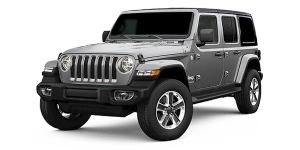
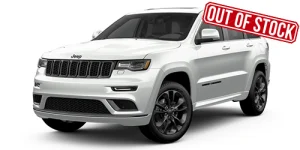

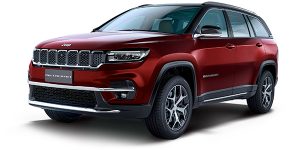

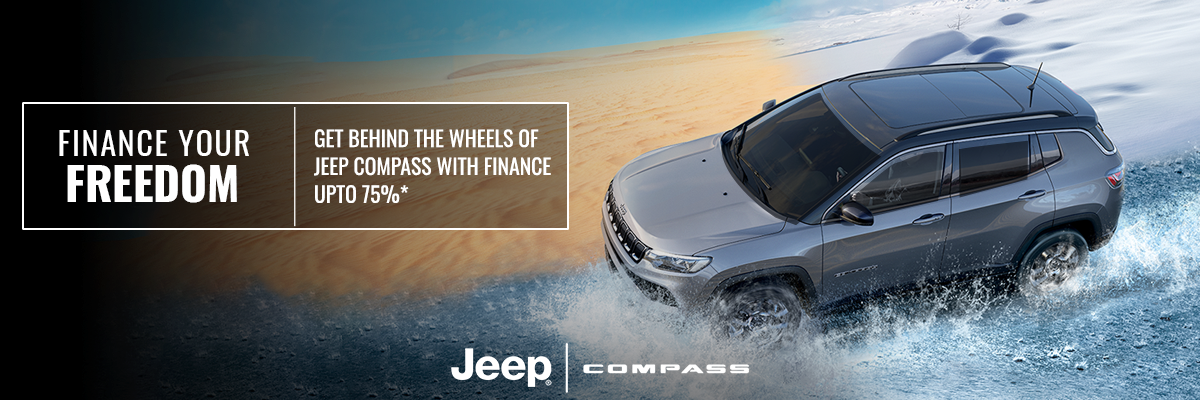
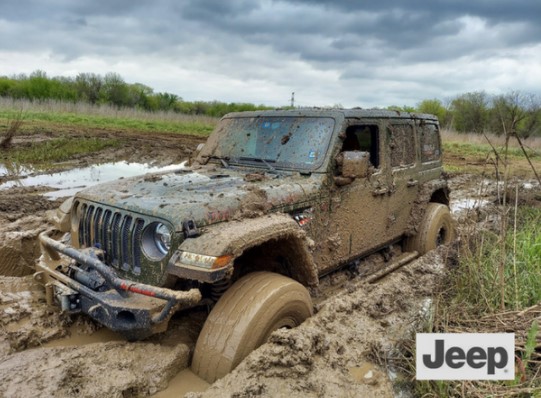


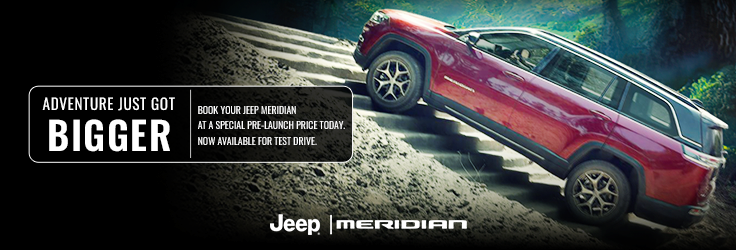
0 Comments